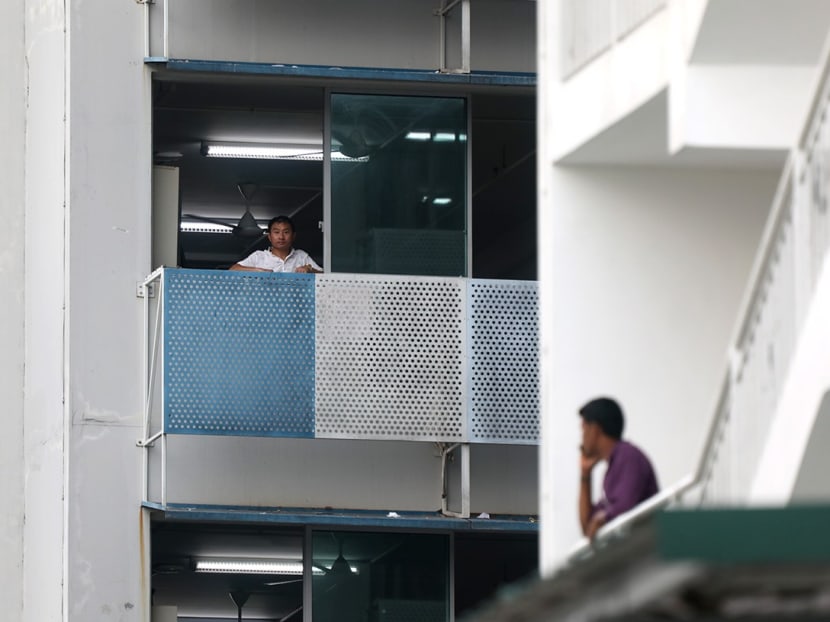Foreign workers in dorms barred from leaving premises under tighter measures to curb Covid-19 spread
SINGAPORE — In an effort to curb the spread of Covid-19, foreign workers staying in all dormitories will not be able to leave the grounds and therefore not allowed to go to work, Manpower Minister Josephine Teo said on Tuesday (April 21).
SINGAPORE — In an effort to curb the spread of Covid-19, foreign workers staying in all dormitories will not be able to leave the grounds and therefore not allowed to go to work, Manpower Minister Josephine Teo said on Tuesday (April 21).
This applies to those working in companies that have previously applied to be exempted from closing or reducing their operations during the circuit breaker that started on April 7 to restrict the movement of people.
During a media briefing on Tuesday by the multi-ministry task force tackling Covid-19, Mrs Teo said that there is the potential for cross-infections to happen when foreign workers keep moving in and out of the dormitories.
Now that all 10,000 foreign workers in essential services who are healthy have been moved from these dormitories and rehoused elsewhere, the authorities will require the rest left behind to not leave the dormitories.
The premises coming under this new tightened measure are the purpose-built dormitories, factory-converted dormitories, construction temporary quarters and temporary occupation licence quarters.
“This is something we have planned for and now we are going to implement it,” Mrs Teo said.
She also asked employers and workers to cooperate with the Government on these new requirements because they are “necessary measures” to minimise the risk of transmission.
These measures will be in place at least until May 4, but may be extended until June 1, depending on how much the transmission rates of Covid-19 have gone down.
In a separate release by the Ministry of Health on Tuesday, the authorities said that employers must continue to work with the dormitory operators to ensure the well-being of the workers staying there, including taking care of their food and other daily needs.
An inter-agency task force set up earlier to support foreign workers has been coordinating with caterers to deliver pre-dawn and breakfast meals to the dormitories to cater to the needs of Muslim foreign workers during Ramadan, the holy month of fasting for Muslims that is set to begin on Thursday.
The Islamic Religious Council of Singapore has come up with guidelines for dormitory operators on how they can facilitate Ramadan religious practices, Mrs Teo said.
This is in addition to an earlier announced rule stating that from Monday to May 4, all work permit and S Pass holders working in the construction sector would have to serve a 14-day stay-home notice.
During this stay-home period, enforcement officers will conduct regular and random checks through phone calls or text messages, Mrs Teo said, and affected workers are required to respond.
From the studies by health experts here, findings suggest that construction sites and places where foreign workers socialise could be the channels by which the coronavirus was spreading from workers in one dormitory to another. This is the reason why the authorities are asking for work at construction sites to stop as well as shopping areas to close, Mrs Teo said.
Responding to a question from the media, she further explained that the Government did not move workers out of the dormitories earlier not because there were high costs involved, emphasising that such measures go well beyond cost considerations.
“It’s not easy to tell workers, ‘Don’t go to work because we want to protect you’. You have to do this in the context of the circuit breaker, where all work mostly has come to a stop.
“To say we could have done this much earlier really does not reflect an understanding of the workers’ own concerns (about their livelihood),” she added.












